Imagine a machine that can transform a flat sheet of metal into intricate shapes, like building components, frames, or even highway guardrails. That’s the magic of a roll forming machine, and at the heart of this metal metamorphosis lies a crucial player: the cold-rolled steel plate.
The Power of Cold-Roll: An Overview
Cold-rolled steel (CRS) plates are steel sheets that have undergone a cold rolling process. Unlike hot rolling, which involves shaping red-hot steel, CRS is formed at room temperature. This process imparts several key advantages:
- Superior Finish: CRS boasts a smooth, clean surface, ideal for applications requiring a polished look or precise forming.
- Dimensional Accuracy: Cold rolling ensures tighter tolerances and more consistent thickness compared to hot-rolled steel.
- Enhanced Strength: The cold working process strengthens the steel, making it suitable for load-bearing applications.
- Versatility: CRS comes in a wide range of thicknesses, widths, and finishes, catering to diverse roll forming needs.
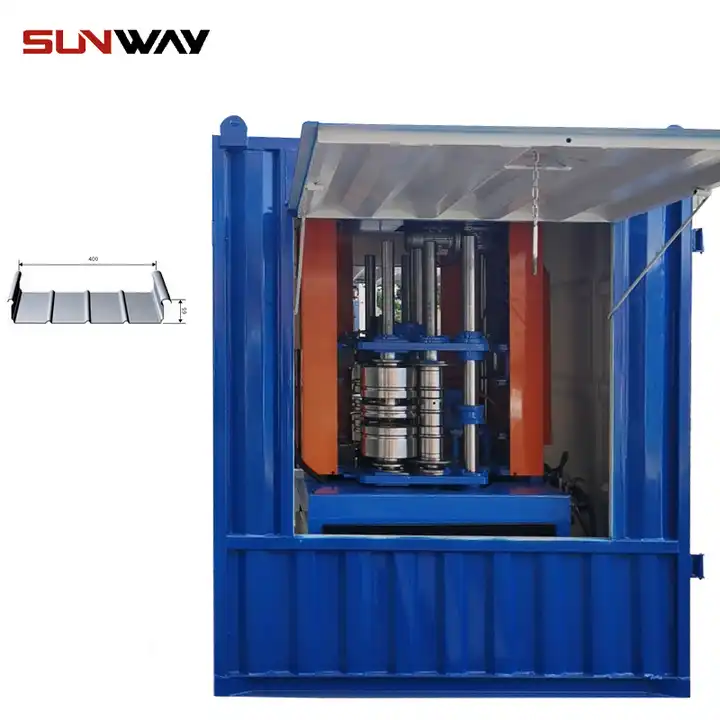
The CRS Advantage: A Functional Breakdown
Here’s a closer look at how CRS plates contribute to the functionality of a roll forming machine:
| Function | Description | Benefits |
|---|---|---|
| Material for Forming Rolls | CRS plates are the building blocks for the forming stations within the machine. These precisely machined rolls progressively bend and shape the metal sheet into the desired profile. | * Durability: CRS offers excellent strength and wear resistance to withstand the constant pressure of shaping metal. * Formability: The cold working process enhances the steel’s pliability, allowing for intricate profile creation. * Machinability: CRS’s smooth surface and consistent thickness facilitate precise machining of the forming rolls. |
| Customization Potential | The ability to create custom profiles in roll forming machines heavily relies on the CRS plates. By designing and machining specific grooves and shapes onto the plates, manufacturers can produce a vast array of profiles. | * Design Flexibility: CRS allows for the creation of complex shapes not achievable with standard profiles. * Product Versatility: This opens doors to a wider range of applications for the roll-formed products. |
| Maintenance and Upkeep | CRS plates, due to their inherent strength, can withstand years of operation. However, wear and tear are inevitable. | * Cost-Effective Maintenance: Replacing individual CRS forming rolls is often more economical than overhauling the entire machine. * Readily Available Material: CRS is a widely produced material, making replacements readily available, minimizing downtime. |
Applications of Cold-Rolled Steel Plate in Roll Forming Machine
The impact of CRS extends far beyond the machine itself. The roll-formed products created from CRS plates find applications in various industries:
- Construction: CRS forms the backbone of building components like roof and wall panels, door and window frames, and structural supports.
- Automotive: From car frames and body panels to trim pieces and undercarriage components, CRS plays a vital role in automotive manufacturing.
- Appliance Manufacturing: CRS is used to create appliance bodies, shelves, and other structural elements.
- Furniture: Chair frames, table legs, and decorative elements can all be formed from CRS.
- HVAC Systems: Air ducts and ventilation components often utilize roll-formed CRS shapes.
Exploring the CRS Landscape: Suppliers and Pricing
The availability and cost of CRS plates depend on several factors, including:
- Thickness: Thicker plates naturally command a higher price.
- Width: Wider plates are generally more expensive.
- Finish: Specially treated or coated CRS plates may incur additional costs.
- Quantity: Bulk purchases often attract discounts.
Here’s a glimpse into the supplier landscape:
- Steel Service Centers: These facilities stock a wide variety of CRS products and offer value-added services like shearing and cutting to specific dimensions.
- Steel Mills: Large steel producers may offer CRS directly, but minimum order quantities could be higher.
- Online Retailers: Several online platforms connect buyers with CRS suppliers, offering a convenient option for smaller projects.
-
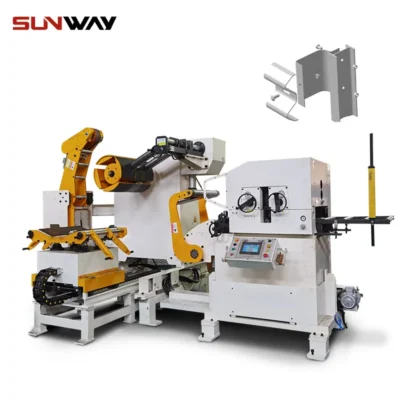 Highway Guardrail End Terminal Forming Machine
Highway Guardrail End Terminal Forming Machine -
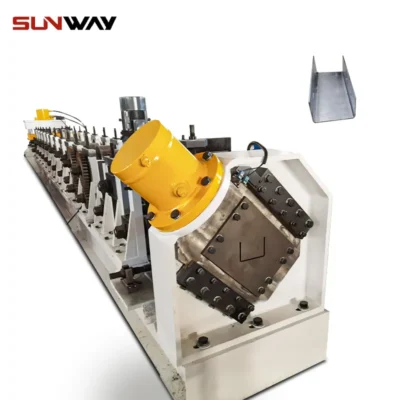 Highway U/C Post Roll Forming Machine
Highway U/C Post Roll Forming Machine -
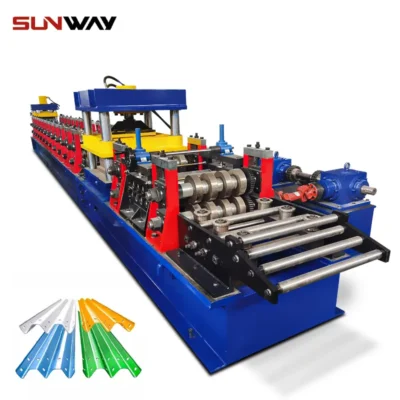 2 Waves Highway Guardrail Roll Forming Machine
2 Waves Highway Guardrail Roll Forming Machine -
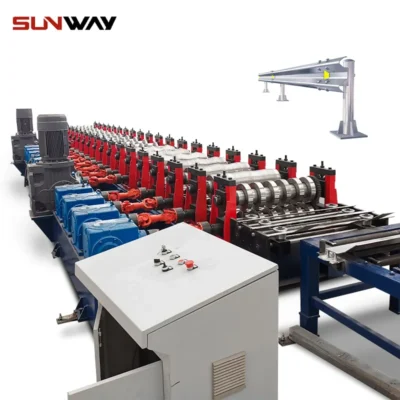 3 Waves Highway Guardrail Roll Forming Machine
3 Waves Highway Guardrail Roll Forming Machine -
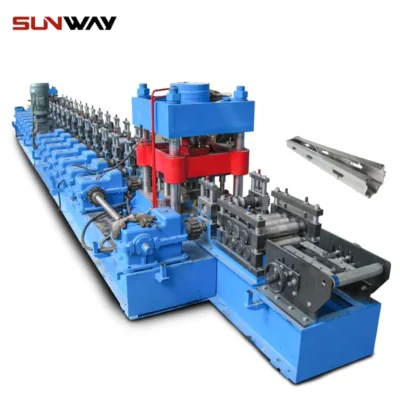 Vineyard Post Roll Forming Machine
Vineyard Post Roll Forming Machine -
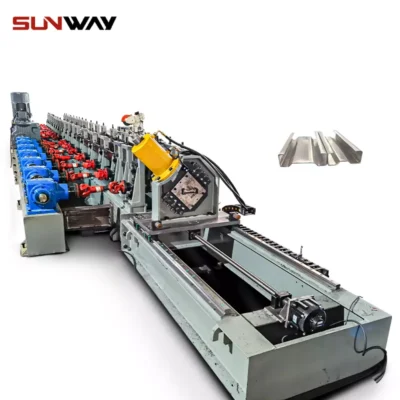 Auto Size Changeable Sigma Purlin Roll Forming Machine
Auto Size Changeable Sigma Purlin Roll Forming Machine -
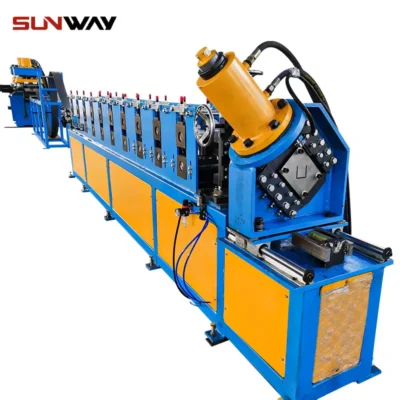 Electrical Cabinet Frame Roll Forming Machine
Electrical Cabinet Frame Roll Forming Machine -
 Din Rail Roll Forming Machine
Din Rail Roll Forming Machine -
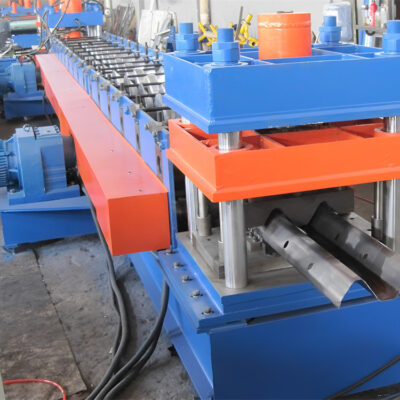 Two waves highway guardrail machine
Two waves highway guardrail machine
Understanding Your Needs: Choosing the Right CRS
Selecting the optimal CRS for your roll forming application requires careful consideration of several factors:
- Profile Requirements: The complexity of the desired profile will influence the needed CRS thickness and formability.
- Strength Demands: The load-bearing capacity of the roll-formed product dictates the required CRS strength.
- Finishing Preferences: Consider whether a painted, galvanized, or oiled finish is necessary for aesthetics or corrosion resistance.
- Budget Constraints: Balance the desired features with cost considerations when selecting CRS.
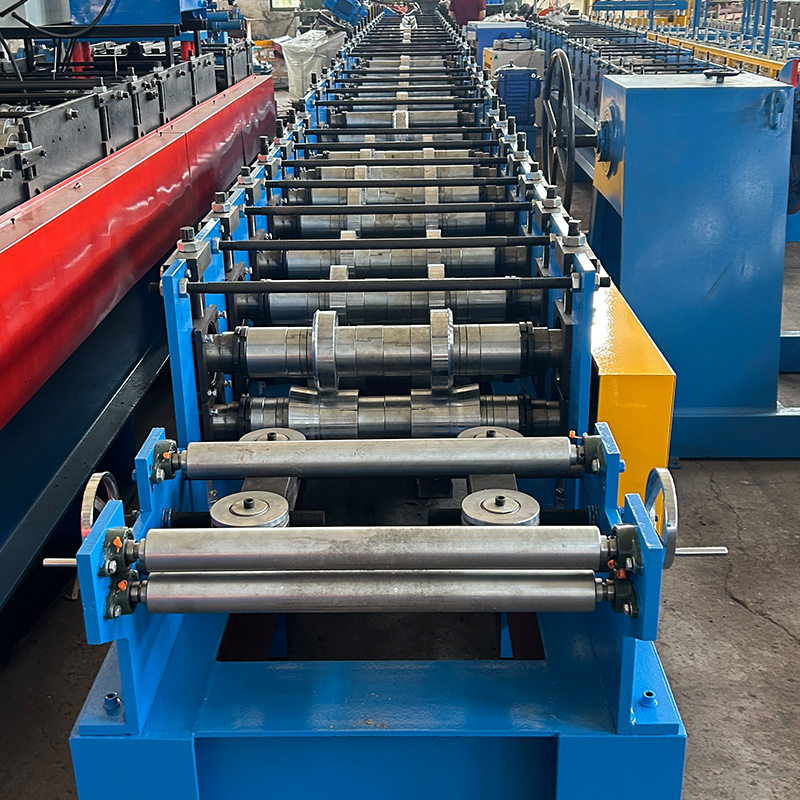
FAQs
Q: What are the advantages of using CRS plates for roll forming machines compared to other materials?
A: CRS offers a compelling combination of benefits:
- Superior finish: Achieving a smooth, polished look on the final product is easier with CRS due to its inherent surface quality. This can be particularly crucial for applications where aesthetics matter, such as architectural panels or appliance components.
- Dimensional accuracy: Tight tolerances and consistent thickness are essential for precise forming. CRS excels in these aspects, minimizing production rejects and ensuring consistent product quality.
- Formability: The cold working process enhances the CRS’s ability to bend and conform to intricate shapes without cracking or splitting. This versatility allows for the creation of complex profiles.
- Strength-to-weight ratio: CRS offers a good balance between strength and weight. This translates to robust roll-formed products without excessive weight, which can be a concern in certain applications like automotive components.
- Cost-effectiveness: Compared to some specialty metals, CRS is a relatively affordable material. This makes it an attractive option for high-volume production runs.
Q: Are there any limitations to using CRS in roll forming?
A: While CRS is a versatile material, it does have some limitations to consider:
- Strength limitations: For exceptionally high-strength applications, CRS might not be sufficient. In those cases, hot-rolled steel or even high-strength steels might be a better choice.
- Formability limitations: While CRS offers good formability, some extremely intricate shapes might require even more pliable materials like aluminum or pre-coated steels.
- Corrosion resistance: Standard CRS is susceptible to rust. If corrosion resistance is a prime concern, galvanized or pre-painted CRS options should be explored.
Q: How thick can CRS plates used in roll forming machines be?
A: The thickness of CRS plates suitable for roll forming machines typically falls within a range of 0.4 millimeters (0.015 inches) to 6.35 millimeters (0.25 inches). The ideal thickness depends on the specific profile being formed. Thicker plates are better suited for creating robust structural components, while thinner plates offer more flexibility for intricate shapes.
Q: How much do CRS plates typically cost?
A: The cost of CRS plates fluctuates based on several factors, including:
- Market conditions: Global steel prices can impact the cost of CRS.
- Supplier: Different suppliers might have varying pricing structures.
- Quantity: Bulk purchases often attract volume discounts.
- Specifications: Thickness, width, and finish all influence the price.
As a general estimate, expect to pay in the range of $0.80 to $3.00 per kilogram ($0.36 to $1.36 per pound) for standard CRS plates. However, this is just a ballpark figure, and it’s crucial to obtain quotes from potential suppliers based on your specific requirements.
Q: Where can I find suppliers of CRS plates for my roll forming operation?
Several avenues exist for sourcing CRS plates:
- Steel service centers: These local businesses stock a wide variety of CRS products and offer processing services like shearing and cutting to your desired dimensions. They can be a convenient one-stop shop for smaller quantities.
- Steel mills: Large steel producers might sell CRS directly, but minimum order quantities could be higher. This option might be suitable for high-volume production runs.
- Online retailers: Several online platforms connect buyers with CRS suppliers across the country. This can be a good option for finding competitive prices, particularly for smaller projects.
Remember: When selecting a supplier, consider factors like pricing, lead times, minimum order quantities, and value-added services offered.
In Conclusion
Cold-rolled steel plates play an indispensable role in the world of roll forming machines. Their unique combination of strength, formability, affordability, and wide availability makes them the go-to material for a vast array of applications. By understanding the properties of CRS and how to select the right type for your needs, you can ensure the smooth operation of your roll forming machine and the creation of high-quality products.
